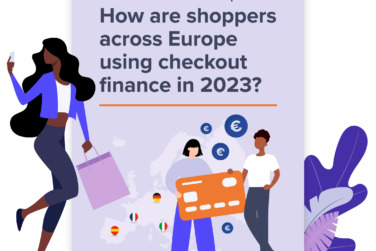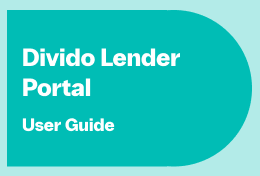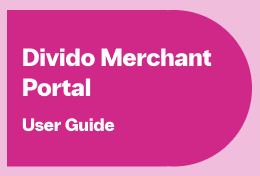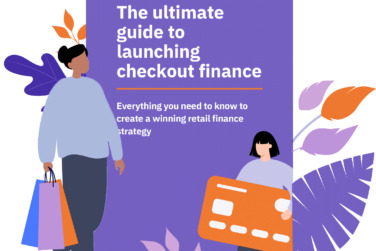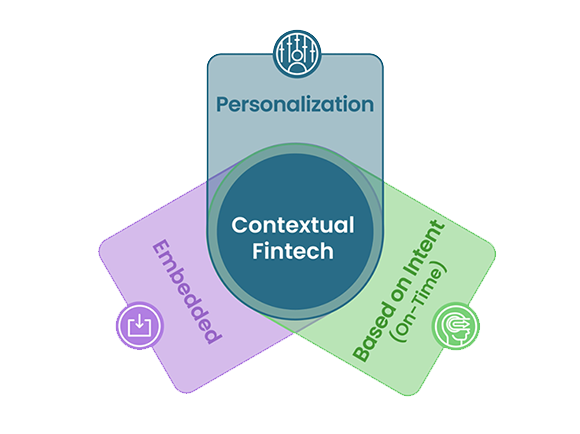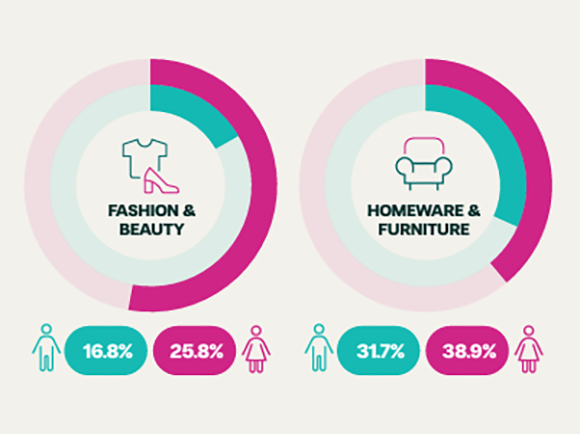Can customers with bad credit still be approved for Buy Now, Pay Later?

One of the most commonly asked questions when it comes to Buy Now, Pay Later (BNPL) is whether customers with bad credit can still be accepted for credit. At the moment, it is possible for customers with bad credit to be approved for Buy Now, Pay Later – but this may soon change.
In order to understand how and why a customer might be approved for Buy Now, Pay Later (also known as checkout finance, retail finance or Shop Now, Pay Later), let us walk through the BNPL process – paying special attention to the credit check, and why having good or bad credit matters.
Can you apply for Buy Now, Pay Later with bad credit?
Every Buy Now, Pay Later lender is different. This means they will set different terms around accepting someone for finance. The question of whether or not a customer will be offered Buy Now, Pay Later with bad credit is a matter of the lender’s appetite to risk. Some lenders are happy to accept customers with bad credit, while others – particularly highly-regulated, Tier One lenders (e.g. banks) – are more likely to turn them down.
So, how does the process work? When a customer applies for checkout finance, they will usually need to submit some information about themselves (such as proof of ID, address history and information about their employer). This is processed by the platform provider and sent to the lender (in some cases, the platform provider and the lender will be the same company).
The lender uses this information to search for the customer’s credit file. At this point, they will run a credit check. Some lenders will perform a soft credit check, while others will perform a full credit check.
Your credit score is a summary of your entire borrowing history. If you have bad credit, your credit file may contain a number of red flags. The kind of red flags that might appear on your credit file include:
- Missed payments: if you have or had planned monthly payments, such as a gym membership, a mortgage or a previous Buy Now, Pay Later loan, and failed to make payments on time, these can appear as bad marks on your credit report
- Going over a limit: if you have gone over your spending/borrowing limit with a current account, overdraft or credit card, this can appear as a bad mark on your credit report
- Defaulting: if you have taken out any loans in the past – whether a personal loan, mortgage, payday loan, or another kind – and have found yourself unable to pay it back, this will leave a bad mark on your credit file
- Foreclosure: this is when you couldn’t afford to repay a loan, so a lender recovered an asset put forward as collateral. One common example of foreclosure is when a mortgage lender takes back your home because you can no longer afford to repay it
- CCJ and Bankruptcy: if you have had a county court judgement (CCJ) or have been declared bankrupt in the last six years your credit score will have been impacted
But your credit score is not only affected by red flags like these. It is a summary of your entire credit history, including the current state of your borrowing. The score is made up of a number of factors, so it may not be any one red flag that is hurting your credit score. Rather, it could be a combination of many little factors, such as:
- Open lines of credit: lenders prefer to see that the amount of debt you have is manageable. Too many ongoing loans and too high an outstanding balance, and you will appear a more risky prospect
- Your credit mix: as well as the amount of money you’ve borrowed, lenders will look at what types of loans you’ve taken out. Your credit mix is the number and types of credit lines you have open, or have had in the past. Too many of the same type, and you may appear to be risky. For instance, someone who has recently opened lots of credit cards will look suspicious to lenders
- Number of applications: every time you apply for a new line of credit, it will leave a mark on your credit file. If you make a lot of applications, this could lower your credit score
- Length of credit history: when it comes to your credit history, experience matters – a young person who has never taken out a loan before will have a lower credit score than an older person with a long history of careful borrowing
- Co-signers: if you are co-signed on any financial products with someone who has a bad credit score themselves, this may negatively impact your credit
- Invalid or inconsistent details: your credit history builds up a picture of your life the more you use financial products. If any of the details stored on your credit file don’t match up – for instance, if you use multiple addresses – this can impact your score
- Not being on the electoral roll: this is one for people in the UK especially. If you are not a registered voter, you are likely to have a lower credit score. You can sign up to the electoral roll here
Will new government regulation make it harder for people with bad credit to apply for Buy Now, Pay Later?
It certainly appears so.
The purpose of the UK government’s new tranche of regulation, expected to take effect in 2023, is to protect consumers from financial harm.
To that end, the government has announced that they will tighten the criteria around BNPL lending, with a specific mention that lenders “will be required to carry out affordability checks.” The exact shape of these regulations is yet to be determined, but it seems likely lenders will be required to perform stringent credit checks before accepting consumers for Buy Now, Pay Later.
Regulations seemed to be designed to:
- Stop customers taking out multiple Buy Now, Pay Later loans – the more they take out at one time, the more likely they are to miss repayments and damage their credit scores
- Stop merchants and lenders offering unnecessary loans for small and inexpensive purchases
One benefit of regulation is that lenders may be required to submit details of their customers’ loans to credit reference agencies. Currently, paying off a Buy Now, Pay Later loan won’t improve your credit score, but in the future you may be able to get a good mark on your credit file if you make your payments on time.
Is it possible to get Buy Now, Pay Later with no credit check?
At the moment, yes, there are multiple Buy Now, Pay Later providers worldwide who offer loans with no credit check. That means there is no minimum credit score requirement. Customers who struggle to access credit cards, loans and overdrafts after often drawn to these providers.
However, this may not be such a good thing for customers. The credit check – whether it is a soft or full credit check – is designed to protect customers from potential harm by ensuring they don’t take out more than they can afford to pay back. So, you are right to be sceptical of any lender who is willing to lend money without vetting their customer first.
When new regulation takes effect, it’s likely we’ll see an end to Buy Now, Pay Later offered with no credit check.
Is it possible to get Buy Now, Pay Later with instant approval?
For the moment, yes, there are many Buy Now, Pay Later providers who advertise Buy Now, Pay Later with instant approval.
But, as before, this should raise alarm bells, as it may not be such a good thing for customers. Those providers who offer Buy Now, Pay Later with instant approval tend to be in the same camp as those who offer BNPL with no credit check. In other words, they are not taking steps to make sure customers are adequately protected.
When regulation takes effect in the UK in 2023, this practice is likely to be stamped out.
On the bright side, many Buy Now, Pay Later providers still offer very quick approval. So, if a customer applies online for Buy Now, Pay Later, they should receive a decision very quickly.
Are there any Buy Now, Pay Later providers who lend to customers with bad credit?
Yes, there are a number of Buy Now, Pay Later providers who specialise in lending to customers who have bad credit histories.
If a customer has a low credit score, they may be attracted to these providers, as many mainstream banks and other providers are likely to reject them. However, as in the two previous examples, these types of lenders are often bad news for customers.
A provider who is willing to offer Buy Now, Pay Later with no credit check may inadvertently cause the customer to receive a negative mark on their credit score if that customer fails to pay back their loan. And, since the customer choosing a provider who offers Buy Now, Pay Later with no credit check is more likely to be financially vulnerable, there is a higher chance this will be the case.
On the other hand, until government regulation comes into effect, customers will not benefit from an improved credit score if they pay back their loan on time. Thus, the customer derives no benefit, but takes on all the risk when they choose these sorts of providers.
Is it possible to be approved for Buy Now, Pay Later with no deposit?
Yes, it is possible to be accepted for Buy Now, Pay Later with no deposit – and this time it’s not always bad news for the customer.
A deposit is usually taken by a lender when offering a customer a loan as an added level of security. In some instances, this deposit is non-refundable. The theory is that, if the customer has already paid back a percentage of their loan, they will be less likely to take financial risks that could affect their ability to repay the loan.
However, if the lender is willing to forego this stage, the customer benefits from being able to take advantage of a 100% loan. From the customer’s perspective, there is no additional risk to choosing Buy Now, Pay Later with no deposit, as the lender takes on all the risk.
Having said that, providers who are willing to offer Buy Now, Pay Later with no deposit may instead ask customers to pay back their loans in a shorter period of time, increasing the customer’s monthly repayments.
Having said that, it is becoming harder to find providers who are willing to offer Buy Now, Pay Later with no deposit – so don’t count on being able to find a 100% Buy Now, Pay Later loan in all your favourite shops!
The bottom line: should we trust Buy Now, Pay Later loans with no credit check, instant approval, for bad credit and with no deposit?
As with all things, it all comes down to two things:
- How much of a risk the customer is willing to take
- What is legally permissible and ethically responsible on behalf of the lender
Right now, the Buy Now, Pay Later market is only semi-regulated. This has allowed some providers to offer loans with no credit checks and instant approval to customers with bad credit and with no deposit. When government regulation takes effect in 2023, it’s likely that many of these practices will be stomped out.
Even so, providers should take heed of their ethical responsibilities in the meantime. They should take proactive steps to protect customers by making sure the most vulnerable people are not able to access unsecured loans that could damage their credit ratings and cause them to incur financial penalties.
Meanwhile, customers should remain sceptical about any provider who is willing to offer Buy Now, Pay Later with no credit check, instant approval or specifically for customers with bad credit. The customer should ask themselves, “why would the lender take that risk?” And, furthermore, “if I do fail to meet the repayments, what will this provider do in response?”
If the customer is borrowing from a riskier lender, they are likely to face worse consequences if things go wrong than if they were borrowing from a mature financial institution or Tier One lender, such as a bank.
One of the greatest benefits of new government regulations will be the tightening of rules around how Buy Now, Pay Later providers communicate about their products. This may include advising customers on the potential ramifications of having bad credit, choosing an instant approval loan or taking out a loan with no credit check or no deposit. When customers are better informed, they are less likely to take financial risks. This will be good news for both the customer and the lender, who can avoid having unpaid loans on their books.
Ultimately, it is up to the lender and the customer how they choose to lend and borrow money. But with new regulations set to change the industry, we hope to see a lower rate of customers unable to pay their loans, and more customers benefiting from improved credit checking.
You might also
be interested in
Keen to know more?


